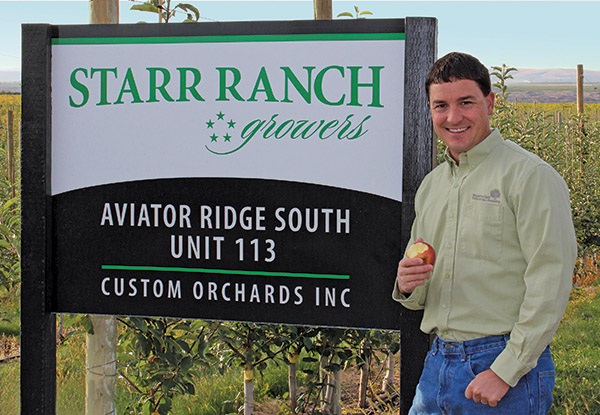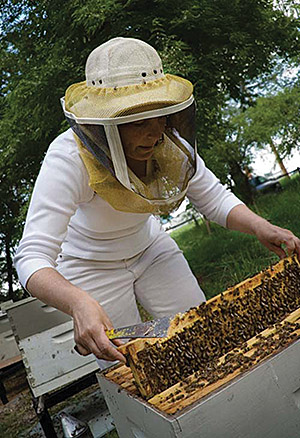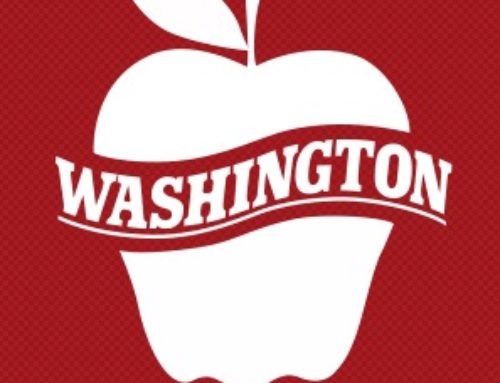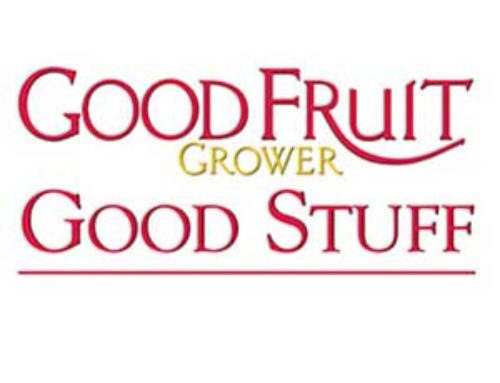 Jeff Cleveringa will lead off the Washington program.
Jeff Cleveringa will lead off the Washington program.
Every few years, the two big, early-season horticulture shows in the United States don’t fall in the same week, giving fruit growers the opportunity to get a double dose of fruit education, eastern and western style, if they’ll travel over three time zones to do it. This is one of those years.
The Washington State Horticultural Association Annual Meeting and Trade Show will be December 2-4 in Wenatchee, Washington. The next week, the Great Lakes Fruit, Vegetable, and Farm Market Expo will take place December 10-12 in Grand Rapids, Michigan.
Washington
Jeff Cleveringa, Hort Association president, said his aim in designing the program, along with co-chairs Karen Lewis and Ines Hanrahan, was to help give growers a broad perspective of the tree fruit industry and follow the entire process from designing and budgeting for a new orchard through production and postharvest handling.
Dr. Terence Robinson, horticulturist at Cornell University, New York, and an expert on tree training and pruning, will kick off the meeting on December 2 by providing his vision for apple and pear orchards of the future. The labor supply worldwide is declining, Cleveringa noted, and the tall spindle training systems that Robinson advocates allow for mechanization of many practices.
Robinson, who grew up in Mexico and is bilingual, will speak on the same topic during the Spanish Language session.
Cleveringa has set up a number of panel discussions during which producers and others will exchange perspectives on finding winning varieties, orchard covers, food safety, and how to find and retain good pickers, for example.
During a session on mechanization and automation, Steve Saunders of PlusGroup Horticulture, Limited, New Zealand, will discuss the integration of horticulture and harvest technology from New Zealand’s perspective.
In the cherry session, on the second day of the meeting, Tim Sambado, president of Prima Frutta, Linden, California, will answer the question “Are automated cherry lines the future of the industry?” Meanwhile, over in the pear session, Tony Freytag, senior vice president of sales and marketing with Crunch Pak, based in Cashmere, will talk about the future of fresh sliced pears.
On December 4, in the postharvest session, Dirk Köpcke, a scientist from Jork, Germany, will talk about successful fruit storage without DPA (diphenylamine). The antioxidant will not be allowed on fruit shipped to Europe after January 1.
In place of an organic session, this year’s program has one on soil health, which should be of interest to organic and conventional growers alike. Dr. Ian Merwin, retired Cornell University horticulturist, and Mike Omeg, a grower in The Dalles, Oregon, will team up to reveal how orchard management influences soil health and tree performance.
Emilio Gil, a researcher from Barcelona, Spain, will provide a global perspective on current orchard spraying practices and coming technologies. Cleveringa said in the future specific nozzles might be required for applying different types of sprays with the goal of optimizing coverage while minimizing drift.
Carol Black, pesticide safety education specialist with Washington State University, will talk about use of protective personal equipment around the world. For the full program, go to www.wahort.org.
Great Lakes Expo
The Michigan show is the larger of the two meetings, combining as it does fruit and berry production, vegetable production, direct farm marketing, and greenhouse production. Last year it drew 380 exhibitors and more than 4,000 visitors from 42 states and six Canadian provinces to the DeVos Place Exhibition Center, Grand Rapids.
A highlight of the apple production program at the Michigan Expo this year is provided by research horticulturist Dr. Alberto Dorigoni from the South Tyrol region of Italy. He will discuss mechanical pruning, hedging, topping, and his latest innovation, “window” mechanical pruning. He will also talk about multileader trees in high-density planting systems.
Dorigoni’s work, which is being followed closely by researchers and orchardists in Michigan and New York, has been described in articles in Good Fruit Grower. In both Michigan and New York, researchers have set up their own trials to see how the fruiting walls can be shaped and managed in ways that reduce labor inputs while nurturing superior quality fruit.
Concern about the welfare of honeybees gives rise to an entire session December 10 on fruit and vegetable pollination. MaryAnn Frazier, Penn State University entomologist, kicks off the session examining the status of honeybees and what growers can do to support pollinator populations. The next day, Frazier speaks again on the risk to bees of pesticide exposure during the pollination period. Other talks will address wild bees and their contribution to pollination and government programs to support pollinator habitat.
Big freeze
The effects of the big freeze in 2012 have generated research projects to try to lessen the chances for large crop losses in the future. Michigan State University horticulturist Dr. Jim Flore is experimenting with a method of delaying bloom using water mist to cool the canopy during early warm periods that lead to rapid bud development. MSU tree fruit IPM educator Amy Irish-Brown and Julianna Wilson, the tree fruit IPM outreach specialist, will discuss benefits of undercanopy microsprinklers for frost protection.
Following the Washington meeting, Cleveringa will travel to Michigan to speak about orchard automation, addressing the question: Is your orchard ready? Merwin will also be at the Michigan meeting to speak about cider making, along with Washington State University horticulturist Dr. Carol Miles, who will speak about cider apple varieties and mechanical harvesting of cider apples.
On the morning of December 11, a program on labor will address immigration reform and its on-farm impacts, what employers need to do to meet their obligations under the Affordable Care Act, and how to manage labor, especially to make best use of the talents of family members and key employees.
The proposed Michigan Tree Fruit Commission will be discussed as part of the tart cherry session. Michigan apple and cherry growers are proposing a plan that growers will vote on that will raise about a half million dollars a year for ongoing improvement of the state’s four horticultural research stations.
The program also includes sessions on peaches and plums, organic production, and labor issues. To see the full program, go to www.glexpo.com. •






Leave A Comment